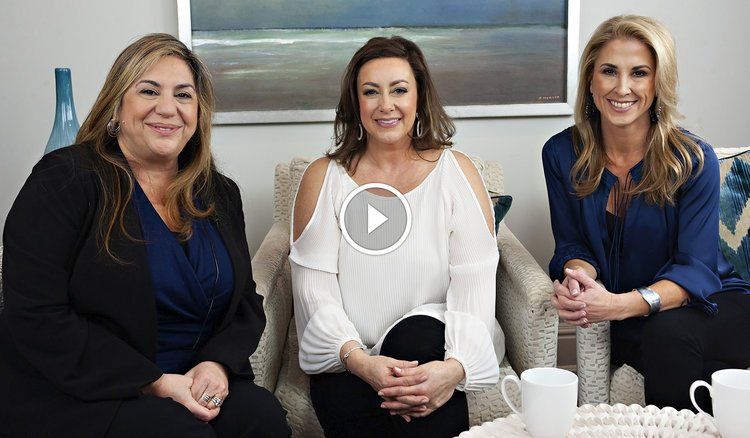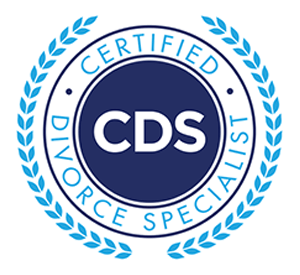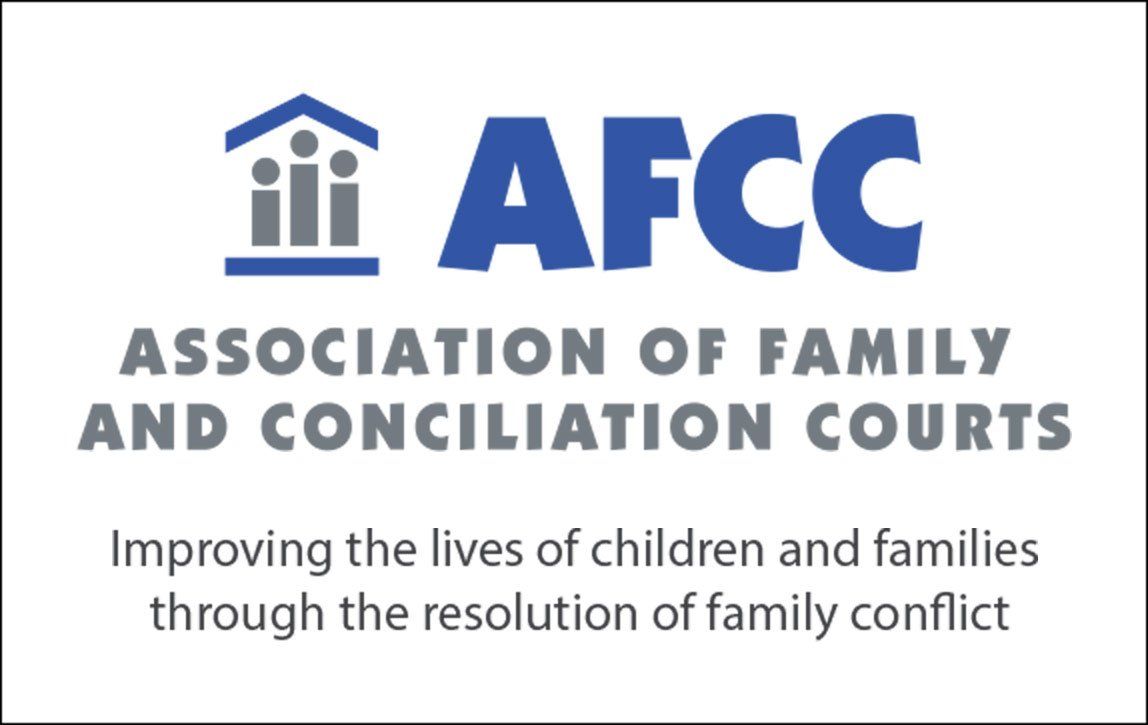Overcoming Obstacles in Post-Divorce Parenting: Tips for Women
Kelly Coleman
Divorce is a life-altering experience for parents and kids alike. In the aftermath of a divorce, women often find themselves navigating the complexities of single parenthood, facing various emotional, financial, and practical challenges. From adjusting to your new role to managing co-parenting dynamics, the journey of motherhood following divorce often feels like an uphill battle. In this article,
Love Your Divorce aims to shed some light on these challenges and offer practical tips to help you get a handle on parenting after a divorce.
Pursue Your Professional Goals
Chasing your professional goals in the wake of divorce not only
benefits your personal growth but can also have a positive impact on your children’s lives. When you strive to achieve your professional goals, you become a role model for your children. You’ll show your children the value of determination, hard work, and ambition. They’ll witness firsthand that setbacks can make way for success!
Start taking steps toward your dream career. For example, if you’ve always wanted to work in education, pursuing a
bachelor of education online is worth considering. You’ll learn all the skills you need to develop children’s academic skills in a classroom setting. And opting for online school makes it easy to earn your degree without quitting your day job!
Take Steps to Avoid Financial Issues
Women can face several financial challenges following divorce. The Motley Fool reports that
money is the number one concern among divorced women, topping worries about their children. Research shows that women experience a 20% decline in income when their marriages end. Men, on the other hand, tend to see their incomes rise about 30% after a divorce.
Take steps to mitigate financial challenges before, during, and after your divorce so you can
maintain your financial footing. Improve your credit score, begin saving up an emergency fund, create a budget based on your expected post-divorce income, and talk to a financial advisor about any concerns you may have.
Talk to Your Kids About the Divorce
Adults and children experience divorce very differently. Today’s Parent explains that young children have a
limited ability to understand complex events and anticipate future situations. Big-picture reassurances and complicated explanations will mean little to children who are mainly fixated on simple, concrete concerns like where they will live and who will look after them. Whatever the age of your kids,
avoid negative talk about your ex. Although it may be tempting to express frustration or anger, remember that your children have their own unique relationship with their other parent. Bad-talking the other parent can cause confusion and distress and contribute to feelings of guilt or self-blame.
Explore Co-Parenting Strategies
Finding ways to co-parent is essential to your children’s well-being, regardless of how you feel about your former partner. Co-parenting means working together to raise your children, even though you may be living apart or engaged in new relationships. A cooperative communication style is vital for successful co-parenting. If you don’t have a great relationship with your ex, consider parallel parenting, a co-parenting strategy that involves each parent spending time with and
caring for the child independently. This approach works best if you draw up a detailed parenting agreement that covers many aspects of your child’s future so you can minimize parental interactions going forward.
Navigating a divorce as a mother is far from easy. But with the right planning and parenting strategies, you can overcome this challenging time and create a thriving environment for yourself and your kids. By going back to school to pursue your professional goals and taking steps to address potential financial problems, you can secure a stable future for your family.
For more tips on moving forward after divorce, check out
Love Your Divorce. On our website, you’ll find a wide variety of insightful articles that can help you transform your divorce into a positive experience!
Kelly Coleman is the co-creator of Consumer Health Labs, which aims to help consumers make healthy choices. They explore some of the most compelling and meaningful data so that consumers can make healthy choices when it matters the most.
HOW A MEDIATED DIVORCE IS AN INVESTMENT IN YOUR FUTURE
Divorce can be one of the most difficult and emotional experiences a person can go through. The decision to end a marriage can be stressful and overwhelming, especially when children are involved. In traditional divorce, the process can be lengthy and costly, with adversarial legal battles that can leave both parties feeling drained and financially strapped.
However, there is a better way to dissolve a marriage: through mediated divorce.
I have practiced family law for more than 30 years, and I continue to train in the skills required for mediation. Over three decades of divorce, my most satisfied clients are the ones who either mediated their divorce or used mediation to resolve their post-divorce conflicts.
Mediated divorce is an alternative dispute resolution method where both parties work with a neutral third-party mediator to come to an agreement on all aspects of their divorce. This process can be faster, less expensive, and less stressful than traditional divorce, making it an investment in your future.
Here are some reasons why a mediated divorce can be an investment in your future:
1. Reduced conflict
Notice that I rank this bullet point above the financial reasons. Money may be important, but the animosity and intensity of a litigated divorce are much more damaging than the financial consequences. Mediated divorce is a non-adversarial process that can help reduce conflict between the parties. A mediator acts as a neutral third-party and helps the parties communicate effectively to come to an agreement. This can help avoid the emotional turmoil and stress that come with a litigated divorce. By reducing conflict, both parties can move on with their lives more quickly and with less emotional baggage.
2. Cost-effective
Traditional divorce can be expensive, with each party paying their own lawyer and incurring additional costs for court fees and other legal expenses. In a mediated divorce, the parties share the cost of the mediator, which can be significantly less than the cost of hiring individual attorneys. Additionally, the process is generally faster, so the parties can save money on legal fees.
3. Faster process
A mediated divorce can be completed in a fraction of the time it takes to complete a traditional divorce. This is because the parties are working together to come to an agreement, rather than battling it out in court. Mediation sessions can be scheduled at the convenience of the parties, which can help speed up the process even more.
4. Better for children
Divorce can be especially difficult for children, who may feel caught in the middle of their parents' conflict. Mediated divorce can help reduce the emotional impact on children by providing a less stressful environment for the parties to come to an agreement. Additionally, the parties are encouraged to put the needs of the children first, which can lead to a more cooperative and less contentious relationship going forward.
5. More control over the outcome
In a traditional divorce, the court ultimately decides the outcome of the case. This can leave both parties feeling dissatisfied with the result. In a mediated divorce, the parties have more control over the outcome because they are the ones coming to an agreement. This can lead to a more satisfactory resolution for both parties.
In conclusion, a mediated divorce can be an investment in your future. It can provide a less stressful, more cost-effective, and faster way to dissolve a marriage. Additionally, it can reduce conflict, be better for children, and give both parties more control over the outcome. If you are considering divorce, talk to a family law attorney about whether mediated divorce is right for you.
10 COMPELLING REASONS TO HIRE GARY OBERST AS YOUR ESTATE PROBATE AND WILLS ATTORNEY: ENSURE YOUR PEACE OF MIND
1. Expertise and Knowledge:
As an attorney who focuses in estate probate and wills, Gary Oberst has a deep understanding of the law and the complexities involved in these areas. This expertise can help ensure that the probate process is handled efficiently and that your wishes are carried out according to your desires.
2. Saving Time and Money: With Gary as your probate attorney, he will help streamline the process, saving you time and money in the long run. This is because they are familiar with the legal procedures and requirements, and can handle all the necessary paperwork and filings to ensure the probate process is completed quickly.
3. Minimizing Disputes: Estate probate can sometimes lead to disputes among family members or other parties. An attorney can help minimize the risk of disputes by ensuring that all parties are aware of their rights and responsibilities, and by helping to negotiate a resolution if a dispute does arise.
4. Preventing Legal Challenges: A probate attorney can also help prevent legal challenges to your will or estate plan by ensuring that everything is properly documented and that all legal requirements have been met.
5. Protecting Your Estate: An attorney can help protect your estate by making sure that all your assets are properly managed and distributed according to your wishes. They can also help ensure that your estate is protected from creditors and other claims.
6. Understanding Tax Implications: An attorney who specializes in estate probate and wills is also knowledgeable about the tax implications of transferring property and assets, and can help you minimize the tax burden on your estate.
7. Providing Legal Advice:
An attorney can provide legal advice on a wide range of issues related to estate planning, probate, and wills, such as how to structure your estate, how to avoid probate, and how to plan for incapacity.
8. Representation in Court:
In the event that a dispute arises during the probate process, an attorney can represent you in court and help ensure that your rights and interests are protected.
9. Helping With Estate Planning:
An attorney can also assist with estate planning, helping you create a will, trust, or other estate planning document that reflects your wishes and protects your assets.
10. Peace of Mind:
Knowing that an experienced attorney is handling the probate process and ensuring that your wishes are carried out can provide peace of mind for you and your loved ones. You can feel confident that your estate is being handled in accordance with the law and that your legacy will be protected for future generations.
Money as Medicine: Seven Steps to Healing
Indigenous author Edgar Villanueva explains how money can be used to heal trauma and restore harmony.
Share
Share on Facebook
Share on Twitter
By Edgar Villanueva
(This is an excerpt from Mr. Villanueva's full article published by the
Omega Institute (eomega.org) and available here:
Money as Medicine: Seven Steps to Healing | eomega.org)
For most people, medicine is something used to treat or cure a disease; it is often a human-made drug, or sometimes an herb. In Native traditions, however, medicine is a way of achieving balance. An Indigenous medicine person doesn’t just heal illnesses—he or she can restore harmony or establish a state of being, such as peacefulness. And the practice of medicine is not just limited to the hands of medicine people; everyone is welcome to participate. Traditionally, Indigenous people don’t wait to be out of balance before they turn to medicine.
In the Indigenous worldview, many kinds of things can be medicine: a place, a word, a stone, an animal, a natural phenomenon, a dream, a life event like a coffee date with a friend, or even something that seems bad in the moment, such as the loss of a job. Have you ever looked back at your life and thought, That was the best thing that could have ever happened to me? That was medicine.
In order for something or someone to serve as medicine, it only needs to be filled with or granted a kind of mystical or spiritual power. Anyone can find and use medicine, just by allowing intuition and feelings to determine whether something can serve as medicine. You listen for its sacred power; you don’t force it.
You don’t choose the medicine, the elders say—it chooses you.
We Gave Money Its Meaning & Power
It has taken me a long, long time (patience is a virtue in Indian country) to accept that the medicine that has chosen me is money. Because, I mean: money? Come on. Money corrupts. Money is dirty, even filthy. Money is the root of all evil, doesn’t the Bible say that?
But what is money but a way to measure value, to facilitate exchange? And what is exchange but a type of relationship between people? Money is a proxy for the sweat we spent on growing food, sewing clothes, assembling electronics, coding apps, creating entertainment, researching and developing innovations, and so on. It’s just a stand-in for the materials we used, the services granted, the responsibility shouldered. Money is a tool to reflect the obligations people develop toward each other as they interact.
Materially, it’s a bit of nickel, zinc, copper. It’s a little linen, mostly cotton, some ink. Actually, today mostly it’s a series of zeros and ones. Bytes, data on screens. Imaginary. Harmless.
And in fact, the Bible doesn’t say money’s the root of all evil. It says the love of money is the root of all evil—in other words, it leads to evil when we let it be more important than life, relationships, and humanity.
I’m not saying there aren’t problems with money when it’s hoarded, controlled, used to divide people, to oppress and dominate. But that’s not the money’s fault. Inherently, money is value neutral. Humans have used money wrongfully. We’ve made money more important than human life. We’ve allowed it to divide us. We forget that we humans made money up out of thin air, as a concept, a tool for a complex society. We forget that we gave money its meaning and its power.
Money is like water. Water can be a precious life-giving resource. But what happens when water is dammed, or when a water cannon is fired on protesters in subzero temperatures? Money should be a tool of love, to facilitate relationships, to help us thrive, rather than to hurt and divide us. If it’s used for sacred, life-giving, restorative purposes, it can be medicine.
If infidelity ruins a marriage, it does not have to ruin a family.
Posted by
Sharon Oberst DeFalaJanuary 5, 2022Posted in
DivorceTags:
affairs, Amicable Divorce, Divorce, Emotions and Divorce, infidelity
There is a common misconception that the only people who can have mediated divorces are people with a “clean record.” Meaning, no fighting, no substance abuse, no cheating, and more. If you think about it, this doesn’t really make any sense. If the only people who chose amicable divorces were people with spotless relationships, then why would they be getting a divorce in the first place?
Every state in America has a version of the no-fault divorce. This means simply that the reasons for your marriage ending are no one’s business but your own. What the state cares about is that the children be treated fairly, that assets and debts be handled responsibly, and that everyone is able to pay their bills in a reasonable manner.
Many judges have gone so far as to describe infidelity in a marriage as a symptom, not a cause, of the breakdown of the marriage. This allows the parties to step back from blame and focus instead on the aspects of their lives that they wish to preserve.
Engaging in a legal battle focuses a lot of resources – money, time, energy, emotion – down an irreparable hole. Resources that might be better spent on healing the parties most severely impacted by the breakdown of the relationship.
step back from blame and focus instead on the aspects of your life that they wish to preserve
Money is one thing that genuinely helps people start to feel better after a dramatic loss. It may sound counter-intuitive, but it is true. Think of some other areas of legal practice: personal injury, products liability, breach of contract, fraud, etc. These are typically people who cannot be brought back to before the injury occurred but find an amount of comfort and healing in the financial settlement they receive.
The same is true in family law. Knowing that you are walking away with the ability to take care of yourself and your children goes a long way in the healing process. The more money a divorcing couple spends on a legal battle, the less they have available for what matters to them: housing, college, recreation, and all of the other components which make for a happier life.
Refocusing away from the fight and the pain that caused a divorce and spending that time and emotional energy on physical and emotional regrowth also goes a long way towards resolving the damage caused by a bad break-up.
Infidelity may be the signal that it is time for a couple to dissolve their marriage, but it does not necessarily mean they have to dissolve everything else they have created together. Bank accounts can be split, not drained. Relationships with children, in-laws, friends and neighbors can be preserved by setting a unified example.
And, primarily, each party’s own respect for his or herself and for the other party does not have to be dragged through a series of depositions, hearings, and trials in order for the couple to shake hands and move forward.
WHAT WE LOVE: Infidelity in a marriage may cause damage. But you can control how much damage it does.
BEING THE BEST YOU IN DIVORCE
I met a policeman last week. He has been divorced 8 years and his youngest child just turned 18 after graduating high school. His child support orders are through, over!
He spent a little time discussing the divorce process with me. He and his wife each had their own lawyers, and they each spent quite a lot of money going through the paces that their lawyers advised. He’s a cop and she’s a teacher, so a lot of money to them has long-term implications. It doesn’t get replaced in the next bonus cycle. But, neither of them knew anything about divorce, so they did what they were told to do, and fought when they were told to fight, and let the Judges rule about how they would divide their parenting time and their retirement accounts, and their personal belongings. Even talking about it this many years after the fact, he seemed sad and remorseful about the way he and his wife had spent that year of their lives.
But, not bitter. Not angry. Just like someone who had gone down the wrong road in a maze, and was now out the maze and on with his life. We talked a little about his kids, where they go to college; what they study, how often he sees them.
On the topic of visiting days and holidays, there was a lot of the word “we.” As in, “we have them all home every year for Thanksgiving.” I imagined his new wife or current girlfriend was the other half of that “we” and that she was probably a good person to embrace, and be embraced by this man’s children from a former relationship. But, as he kept talking, it became apparent that the “we” with whom these kids spend their school vacations are their parents. Both of them, Mom and Dad; long divorced Mom and Dad.
“Oh,” he assured me, “we don’t see each other every day, or anything like that. We each gotta’ have our own lives.”
“Every week,” I asked. He stopped and thought. No, probably not.
“Every month?” He did not have to stop and think. He just said “Of course.”
I had to ask, “Why do you ‘of course’ see each other every month?”
Then he got a little sheepish, as he admitted that he still goes by her place on the first week of the month and pays her child support. There are no children and the court order had ended, but he knows that she relies on that money to pay her bills and make ends meet. And he couldn’t face himself if he cut her off just because the last kid was out of the house. “What kind of dad, what kind of man, would I be?” he asked me.
I told him he is a good man. He knows he is. I don’t know how long he intends to go on giving his ex-wife money. Maybe she knows enough to be saving some of it for when he no longer has the ability just to help her because he wants to. All I know is this: for now, he gets to be part of the Mom and Dad who spend every holiday and visiting day with his kids, he is welcomed in his ex-wife’s house whenever they feel like seeing each other, and – the most important part of all – he can look himself in the mirror and like what kind of man he is.
What We Love: Bad marriages and bad divorces all end, one way or another, but good people are always good people.
Weekly Glass of Wine
Posted by
Sharon Oberst DeFalaNovember 3, 2021Posted in
DivorceTags:
Amicable Divorce, Children and Divorce, Divorce, RelationshipsWhy would anyone in his right mind babysit for his own kid on his free weekend while their mom, who collects alimony and child support, goes out on a date?
There are, it turns out, several reasons. When my friend Ned was newly divorced his ex-wife and he decided to stay on friendly terms. This meant that they could have a glass of wine together during pickup and drop off of their 5 year old daughter CeCe without it creating problems. Truth be told, they could not have two glasses of wine without getting into arguments, hence the divorce, but one glass was fine and dandy. So they would have an occasional fine and dandy glass of wine, wish each other the best, and go on with their lives.
One Friday afternoon, Ned stopped by his old apartment to pick up CeCe for the weekend and had a few minutes to spare, so he and his Ex poured a glass of wine and talked about their plans for the upcoming weekend. Ned was taking CeCe skating, to a movie, and some other father-daughter bonding moments. The mom, Agatha, had a date scheduled with a guy she knew from work. She was nervous and excited to begin dating again. But, this was a guy she had known for a few years, so she thought it would be okay.
Ned encouraged her to relax, have fun, and make the best of the weekend. He coached her not to expect the first date to be perfect, but it was great for her to be dating–good for herself-esteem. If anything, Ned sounded more like a supportive girlfriend than an ex-Husband.
One week later when Ned brought his daughter back to Agatha’s house for the regular visitation rotation, he asked her how the date went. Sparing you the details, it did not go well. The new guy was a reminder to Agatha of all the things that she still respected and admired about Ned. Not the “I made a mistake; I still want you” respect; but the “I am so lucky this is the guy who is raising my daughter” kind of way.
They had a laugh about it and moved onto other topics. But the lingering feeling of having a team-mate when all else looks bleak stayed with each of them. It makes the other decisions of their day-to-day balancing act that much easier. Like so many exes, they are better friends than they were spouses.
Here is the kicker. Ned confided in me that he is grateful he is there to help smooth the rough edges of Agatha’s dating life. It not only keeps them more civil with each other; but he also protects his daughter, an only child, from the hazards of a single mom’s dating life. He feels he is being both a good ex-husband and a great forever-dad in one stroke.
I think Agatha and CeCe would agree.
And THAT is why, although it is easier to miss a visitation weekend, or skip the occasional glass of wine that goes with it; the “hard work” of showing up is almost always worth it.
What We Love: People who place their self-respect on who they are for others; not just for themselves.
https://love-your-divorce.com/2021/11/03/weekly-glass-of-wine/
Opportunity for Personal Growth
September 1, 2021
Intersections can lead to growth.
At its core, divorce is a transition from one lifestyle to another. From marriage (and its accompanying perks and deficits) to a new life, whether it is as an individual person, a single parent, or someone on the brink of a new relationship. Transitions (the intersections of life) are always the right time to take stock and make informed decisions going forward. Or – to continue the analogy – a time to look both ways.
The greater one’s willingness to consider what within themselves can now grow or be excised, the more benefit they derive from the experience. Whether you decided to divorce, or you were surprised by the revelation, it is still an opportunity for you to see a greater potential in your own future and map the path to get there. This is why I advocate for my clients to consider working directly with qualified mental health professionals throughout the divorce process, whether litigated or mediated.
The choices you made to bring you to this moment, whichever moment you are in right now, contain important evidence and information that–when mined correctly–can provide you with the instruction manual you need to achieve your next successes. Employing the forensic tools of a therapist, psychologist, coach, or other appropriately trained professional can help you garner the most wisdom that your divorce is offering you.
Anyone who goes through a major life change, which divorce always is, is well advised to dig around within that moment and find all of the available information they will need to make the next chapter in their lives more fulfilling, more uplifting, more empowering, and more vital. With these tools we continue to lift ourselves up, over and over indefinitely, no matter how large or small the transition of any given phase.
Still the value of a mediated divorce or the amicable negotiations that often accompany it, is not the same as the growth opportunities presented in a typical litigated divorce. Working together with a co-mediation team of a mental health professional and an attorney brings an integrated approach.
Amicable divorce allows both parties to help each other see into their strengths and areas for development. Who knows us better than our own spouses? And when those areas for improvement can be used to our advantage, and not our disadvantage, then we grow together all the more quickly and effectively.
It is common for litigating spouses to exploit each other’s weaknesses. In fact, exploiting each other’s weaknesses may be what led to the divorce in the first place. It is transcendent, however, for divorcing spouses to use this opportunity to lift each other up.
Here are some sentences that emanate from such a relationship: “You will be better off now because I will no longer be your crutch,” “I will be stronger now as I take more responsibility for the choices I made in our marriage.” These words of healing and redemption resonate long past any divorce process. These moments of rejuvenation and insight help set a different standard for the children who will in turn pass that strength to their children.
What We Love: Every transition is an opportunity for growth, within ourselves and within those we care about.
Holidays 2020: The Indelible Year
December 23, 2020
One of the things we will all remember about 2020 are the holidays. When we look back at all of the Mother’s Day celebrations we have had in our lives, it is not always easy to remember which one happened in 2006 versus 2010, for example. But whatever we did for Mother’s Day in 2020 will stand out as unique and memorable in our lives. Whatever else has been said about 2020, this is an indelible year.
When we were able to gather outside at social distances we did – BYO picnics to what used to be a family BBQ; or pre-plated s’mores-fixings at fire pits, instead of all those hands digging into one ripped bag. I live in the Northeast where Spring and Fall holidays are typically inside events. This year they were commemorated via Zoom, House Party, Power Point, webinar, You Tube, and good-old-fashioned cards sent via USPS.
As we near the end of this (hopefully?!) unique year, we are all performing mental calculations about what we are willing to sacrifice, what we must forego, and what we must preserve for the last round of holidays this year. Some of our annual traditions have been re-made: instead of going to a Chinese Restaurant for December 24th; we are starting to gather recipes for our favorite Chinese foods. Some are being postponed this year: the annual big sleepover at my cousins’ house. But some we will find a way to preserve, no matter what: annual pajama day, for one.
It was with these concerns in the background that I sat recently with a couple as they mediated their divorce agreement. Their children are 6-year-old twins. 10 months of lock-down is a much bigger percentage of those kids’ lives than it is of their 40+ year old parents. And, to their unending credit these parents have done everything in their power to give their kids a happy care-free year. Even as the father’s business was shut down for months and has had inconsistent information about reopening. The mother works in the healthcare industry and has had to test and quarantine and comfort families through unimaginable loss. The parties separated before the pandemic began and have had to coordinate with each other almost every day to make sure that the kids are getting their educational needs met. Oh, not to mention, plus just plain parenting. It has been an ongoing adventure.
When the Mom first asked about Thanksgiving. They were each hesitant to say their next thought, but they both had the same idea: the 4 of them together in the family home. A quick discussion about logistics and then they rolled right into Christmas Eve, Christmas Day, and New Year’s. I just sat and witnessed what was likely how they have always functioned at their best. Brainstorming ideas to make the kids’ have a great holiday season. Juggling schedules, connecting on budgets, getting excited about decorations. For that moment they forgot the forces that are driving them apart and were able to have a truly heart-warming image of what two separated parents can do to preserve this Christmas for their kids.
We hear it and say it all the time. What makes these occasions special is not what we get, but how we spend the time.
Divorce or no divorce – I wish you all a peaceful end to this challenging year.
Making the Best of the Bird-Nest
July 8, 2020
I have 4 pending uncontested divorces right now that range in "amicable" between 1 and 3. 1 being "completely-kindred-spirits" and 3 being "on-the-verge-of-explosion."
These are my suggestions for how to keep an uncontested dissolution closer to a 1 than a 3 during the covid-19 shutdown.
- Divorce should be treated as both a legal and an emotional decision. We are living in a heightened emotional state as a world right now, and it plays an even bigger role than usual. Parties (jointly or separately) benefit from employing mental health professional(s) for the emotional aspects of the divorce. Clients who let their attorneys (or closest friends/relatives) inform their decision making tend to end up more polarized than the ones who process their emotions with a professional.
- While we are in lock-down, more families are sharing parental responsibility through the bird-nesting model. Some do so by alternating "lead" and "support" parents within the household, if they have nowhere else to go. The parents who can do this successfully are the ones who stick to a written schedule and abide by it.
- Some bird-nesting families are fortunate to have have an additional residence at their disposal. While one might intuit a benefit that having one party live in the second home and "visit" the kids in the marital residence, it is sometimes the opposite. The party living in the marital residence day in and day out may sometimes feel unfairly used by the "visiting" parent. This is an area where the home bound parent frequently projects onto the remote parent a sense of freedom and idleness. Both parties in this situation are well served to treat it more like a host-and-guest situation. Just as right now we do not drop by our friends' houses unannounced, we should not be doing so on our spouses - no matter how much we miss our children. Also, we would never visit a friend's house and leave dirty dishes in the sink, dirty laundry on the floor, or an empty mayo jar in the fridge. Neither should we be doing any of these things while bird-nesting.
- Overall, whether during Covid-19 shut-downs, or any other time that I am mediating between parties, I always try to help them take a step back from their projected emotions and imagine that the exact opposite could also be true. If, for example, the husband tells me that his wife "is so excited for this divorce, she can't wait to get away from me and just leave me holding the bag with these kids." I ask him to imagine himself on the opposite side of the picture for a moment. "If you were the one who had just moved out of the marital residence and into a small apartment, leaving the kids behind with their mom - who is mad at you right now - would you be joyful? Or sad? Would you feel relief? Or fear?"
Whenever a mediation client of mine begins to think that the other party is somehow in a better position, I try to get them to really see what that position is, and recognize that it might feel just as bad as their own.
COVID AND CUSTODY
JUNE 23, 2020
The focus and purpose of any custody schedule is the best interests of the minor children. To the extent that a custody arrangement places a minor child directly in harm's way (violence, direct exposure to a contagious person, etc.) it should be modified accordingly. Modification of a custody plan should never be a unilateral decision by one party. If the parties cannot agree together to a modification it will need to be brought before a judge. In the situation that a judge is unavailable or cannot be seen in a reasonable time period, parties are able to pursue other means by agreement, sometimes known as alternative dispute resolution; such as private mediators or arbitration judges. In order for the findings of an alternative dispute resolution to be enforceable the parties need to agree in advance that the parties will abide by the decision (that the findings
will be binding).
Parties who unilaterally change custody arrangements are either in breach (if it was an agreement between the parties) or contempt (if it was court order). Whether the breach or contempt can be found right away because of court closures or other Covid-19 related circumstances does not change the fact of the breach or contempt. Eventually, the case will be heard and justice will be found. I understand that judges are going to be particularly wary of parties who find a way to take unfair advantage of the current situation. So, while a breach may not ordinarily have fines attached to it, a breach during Covid-19 may include unanticipated costs or fees. While a finding of contempt usually only carries a financial burden, judges may wish to use their discretion to include incarceration in severe cases.
Trial court judges also frequently have the discretion to enter orders that they find to be in the best interest of the minor children. As such cases eventually get heard they may result in not only reverting to the pre-existing custody arrangement, but maybe to one that favors the disenfranchised parent.
Prior to the current pandemic courts were beginning to look more carefully and critically at cases of willful parental alienation as a form of child abuse. Jumping forward to a time after the isolation and quarantine orders, judges may well see parents who unilaterally changed custody arrangements as having willfully caused parental alienation, and may apply the responses appropriate for such cases. (Which may include re-structuring custody arrangements, mandatory counseling, and even incarceration).
Beyond that, the predictability and stability of maintaining a custody plan is presumed to be in the best interest of the minor children. After the courts initially shut down for Covid-19, those that remained open were hearing emergency cases only. (As suggested above - violence, illness, etc.) The judges were coming on to lawyers' forums such as webinars and online discussions and encouraging members of the Family Bar to be more creative than we have ever been in our efforts to resolve family matters out of court.
To this end, we have been working with clients to see past the immediate conflicts and look at the bigger picture. I have a mediated divorce right now in which one parent works in a hospital and the other has been home with the kids during the shut-down. Both parents have found ways of being open and flexible with each other to give the kids as much normalcy as possible. For example, while the when the nurse is with the kids, they are allowed to ride their bikes at the marital residence. The parties do not enter each other's homes and the parties both take all appropriate precautions, including showering immediately after work, no work clothes or shoes, work masks and gloves stay at work, etc.
Finally, the most important thing that parents need to know when they are considering whether to modify any custody plan is whose best interest they are really serving. It is too easy to get caught inside our own heads, especially during such an unprecedented time, and tell ourselves that we are protecting our children. Asking an informed neutral third party (such as a therapist or attorney ) for a dispassionate perspective might be the best thing of all that parents can do for their children right now.
DECIDING WHETHER TO DIVORCE (OR NOT)
JUNE 12, 2020
One of the reasons people are often upset with the divorce process is because they think it will change the spouse's behavior. It does not. It frequently just exacerbates already frustrating situations. The questions one should be asking oneself when contemplating a divorce are not, "Am I happy in this marriage?" The questions need to prompt you to look further down the road: "What am I hoping to gain if I decide to divorce my spouse?"
We have all seen our friends divorce one "type" of man (or woman) and then turn right around and start dating/marrying another version of that exact same type. The divorce has not done much to improve our friend's situation in those examples.
Here are some of my suggested questions for detemingin if a divorce is the right answer:
- What is the part of my marriage (family, partnership) that I cannot live with out? (Child custody, relationship with in-laws, marital residence, 2-income life, beach house vacations, etc.)
- If my divorce came down to giving up that one thing; would I be willing to do it? And, what would happen if that is what a judge ordered?)
- When I am upset with my spouse, is the cause something that s/he can control?
- Is it something s/he is doing on purpose?
- Is it something that would likely upset any rational human being (such as lying/cheating/stealing)? Or am I being overly sensitive to it (such as table manners)?
- What role have I played in making things more difficult between us? Would I be willing/able to change my behavior? What might it change between us?
- Does the feeling of wanting to escape the marriage have any hidden opportunities to instead improve our marriage - whether through communication, therapy, becoming close or giving more space, practicing trust exercises, etc...?
- Do we both feel that we have tried everything and it is just time to move on, or am I alone in my conviction?
These questions are worth exploring: alone, with a qualified therapist, maybe even with your spouse. And they do lot more good before you begin a divorce process!
WHAT TO KNOW ABOUT PRE-NUPTIAL AGREEMENTS
June 5, 2020
There is a common misconception that prenups are for people who plan to get divorced. The truth is that they help prevent divorces.
I am an advocate for prenuptial and also post nuptial agreements. Most will never be seen by a judge or any other third party. Their inherent value is that they offer couples an opportunity to stop and communicate about the questions that we frequently take for granted. Each person has a tacit understanding of the correct way to handle finances, assets, debts, children, estate planning, and overall day-to-day management of a household and a marriage. What we learn over time is that no two people have preconceived identical notions. Talking through each partner's expectations, together, with a mediator, or even through individual attorneys, is a healthy way to find the areas of overlap and resolve the rest in advance of a problem.
No two prenups should be identical, and each should be the result of probative conversations resulting in tailor-made resolutions. For example, if one party's goal is to protect inherited wealth then the parties will want to include estate-planning language in their prenup. The spouse-to-be should agree in writing in advance to waive his or her spousal share in the event of an untimely demise. By discussing this calmly and rationally the parties may agree to always carry significant life insurance, or put aside a separate amount to provide for the surviving spouse's needs, or other solutions. In this manner, each party's concerns (giving away inherited wealth, being left with nothing) are addressed and alleviated in advance.
Other important areas include titling and gifting assets. Without a clear understanding in advance small otherwise harmless gestures within a marriage can escalate into nightmare proportions at the time of a death or divorce. If a husband uses his pre-marital assets to purchase an expensive piece of art and hangs it in the wife's home office and then dies, who owns the art? Does it belong to his estate (which may include children from a prior marriage), if it was purchased with funds from a family trust, does it belong to that trust, or to the wife? A well-written prenuptial agreement can help the parties decide. But a well-discussed prenup can help avoid the problem altogether. If the husband intended to gift it to his wife, all he needs to do is put the title to it in her name at the time of the purchase. The wife can simply ask who has title to the art when she sees it in her home office, and the issue never becomes a problem. A couple who has discussed these subtleties have the tools to keep their lines of communication open and avoid unwanted surprises.
But, expensive art, family trusts and premarital assets are not the only reasons to enter into a prenup. I sometimes tell my clients to think of it as "Secular Pre-Cana." Two people who are coming into a marriage with nothing but their duffel bags and W2s still need to know what their plans are going to be. It is a great time to talk about expectations regarding income, assets and debts, household bills, and other unique concerns. Some couples keep two separate bank accounts their whole marriage. Others keep some joint and some separate assets. Still others put all income into one pot. Which style fits this couple? Should they invest in life insurance? Term or universal? Does either spouse have elderly parents who need special consideration, even if something happens to that spouse? Some partners go into their marriage with the understanding that neither of them wants children not realizing that their partner hasn't ruled it out yet. A frank discussion before tying the knot can help the partners see each other's side and reach a consensus before anyone gets pregnant.
While many prenuptial conversations can be difficult the truth is that they are much easier to have between intendeds than between a married couple with children.
For how to start the conversation, I suggest something along these lines, "I want us to always communicate with each other. Let's talk about all the things we think we know, and make sure we both feel the same way about them."
Final note: I want to share a story about a particularly successful post nuptial agreement I did. The husband was suffering from the disease of alcohol addiction and the wife had multiple concerns - inherited family assets to protect, young children, and a chronic disease. Giving them both an opportunity to talk through their issues and work together to imagine viable solutions turned it around. The agreement was the catalyst for the husband to identify - and maintain - the help that he needed. I ran into the family 18 months ago and they were still together, happy, healthy and sober, 10 years after our work together.
By Laura Pearson'
•
03 Apr, 2024
Thriving as a Single Parent: Strategies for Success
28 Feb, 2024
Are you wondering about four of the most common reasons divorce occurs? Read on to learn how a divorce attorney can help.
03 Sep, 2023
If you're going through this tough time, our local divorce lawyer can help you have all your ducks in a row so everything goes smoothly. Check it out!
19 Apr, 2023
How a mediated divorce is an investment in your future
19 Apr, 2023
There are lots of qualified and experienced divorce attorneys out there. Here are some questions to ask divorce lawyers before you start working with them.
22 Feb, 2023
If you're searching for the best divorce attorneys to represent you, be sure to follow these tips. Here's how to find the most reliable and experienced help.
By Hibu Websites
•
07 Feb, 2022
Are you considering hiring a divorce attorney? Here are three tell-tale signs that you may need one on your side.
By Hibu Websites
•
11 Feb, 2020
I graduated law school in Portland, Oregon and moved home to Connecticut to practice law with my father. For more than two decades I have worked on hundreds of divorce cases, involving everything from best friends who just could not be married to each other anymore to bitter enemies bent on each others misery and destruction. I believe that my experience in and out of the trenches gives me unique insight into how to help people survive their divorce with the least possible amount of personal/emotional/financial damage. Not everyone needs a divorce, but if you need one, you deserve to Love Your Divorce! Sharon Oberst DeFala
By Hibu Websites
•
11 Feb, 2020
I want to introduce you to a great divorce video series and website called “Single Process, the process of going from a we to a me.” https://www.singleprocess.me/ Barbara Hazelton and Jo Briggs are empowering women through their own investigation into all of the questions surrounding divorce: legal, finanical, personal, parenting, dating, and many more. They do their homework, interview experts, and help people navigate their way through what can be a daunting process. My episode just aired and it is about preparing for your divorce before you even meet your lawyer. https://www.singleprocess.me/prep Don’t just watch me, though. See what topics apply to you and watch as much as you need. I am proud to be a small part of this important work.
By Hibu Websites
•
11 Feb, 2020
The most important tool in your divorce is frequently the most over-looked, and avoided. Even its name is off-putting; but it is the key to understanding all of the other issues which arise. It is called (drumroll, please), “The Financial Affidavit” (yawn). Frankly, most people should keep a current finanical affidavit available whether or not they are contemplating divorce. A financial affidavit is just a form that shows you how much you have in income, expenses, liabilities and assets. While these may sound like no-brainer questions, most people cannot accurately answer these questions off the top of their heads. Sometimes one member of a family knows all the answers and the other just relies on that person. Sometimes neither party can answer them. Rarely, but sometimes, both parties are very aware of all of the finances. It is surprising to me how often a client – or an opposing party – resists using the simple form available on the Judicial Branch websites of most states. It can be a little complicated the first time you look at it (for example, in Connecticut, you have to divide every monthly amount by 4.3 weeks). But the value of this tool far outweighs its inconvenience. Here is a link to the CT “Long Form” to give you a sense of the questions it poses. https://jud.ct.gov/webforms/forms/FM006-LONG.pdf WHY: Look, I hate to be the one to tell you, but divorces frequently come down to a set of financial decisions. After the child-rearing and emotional issues have been resolved, it is similar to a business transaction. People want to know: How much child support will I have to pay or receive? How much alimony? What portion of the debts and assets will be assigned to me? The answer to these basic and all-important questions is not a secret magical formula. It is a direct function of the information contained in your own personal financial picture. Simply put, better informed is better prepared. Building your own financial affidavit will likely compel you to ask questions and make some calculations that you never thought to ask. Questions like how much money do we spend on restaurants each week? How much equity is in our house right now? Do we have retirement accounts, and how much are they worth? Not only is this good information for the court. It is good information for you. If you are trying to imagine what a post-divorce future will look like, knowing your finanical picture can help define those scenarios. Picture knowing how much money you would have if you sold your house; how much disposable income you have right now; and what you are paying for health insurance each month. These are the questions people pay attorneys and financial consultants to help them figure out. And, ironically, you are the only one who can get them the information which unlocks these secrets! WHEN: Early and often. If you bring a completed financial affidavit with you to your first meeting with your divorce attorney or mediator, you will save yourself time and money getting to the heart of what the case will entail. In most jurisdictions you will need to disclose the information within the first few weeks of any divorce action, and so will your spouse. So, why wait? Get the information to your attorney as soon as you can. The earlier your lawyer or mediator is informed about your case, the more accurate they can be in looking for an appropriate resolution. FAQ: Why should I divulge my information to my spouse? Aren’t we going to be fighting about this? Shouldn’t I keep it a secret? Answer: The court will compel you to share all information, anyway. Any knowledge which is not exchanged voluntarily is likely to come out on the witness stand – either in deposition or at trial – anyway. But, of course, voluntarily costs less time and money. HOW: Despite the mysterious-sounding 4.3 weeks rule and all of the detail (weekly grooming costs!?), these forms are straightforward once you understand them. And, as with so many things, the internet has made the work easier than ever. Start by finding your most recent paystubs, tax returns, mortgage loan statement, and credit/debit card statements (these can be downloaded from your banking institution). These 4 sets of documents will provide you 80% of your necessary information. When you are ready to get started, set aside one hour of time. Supply yourself with one scratch copy of the form to work on and a blank copy to fill-in later, a sharpened pencil & eraser, a calculator, a note pad for jotting questions or doing calculations, and a tall glass of your favorite beverage. Preferably non-alcoholic, to cut down on mistakes. Then, start filling in the blanks. Any questions you still can’t answer, just make a note and move on. Pro tip: On your first time through the form, use the figures as you find them. If your mortgage is a monthly amount; write it that way. If you spent a total of $5,000 on vacations last year; write it that way. Get your figures all in one place; convert it to weekly later. Once your first draft is complete you have a choice – you can stop there and give the draft and your supporting documentation to a professional to complete for you. You have already saved yourself hours of professional fees by making a solid first draft. Or, you can go for it and convert the figures to weekly on your own. It is not so hard. Any monthly amount gets divided by 4.3. Any annual amount gets divided by 52. So, if you spent $5000 on vacations last year, you would put $96 as your weekly vacation budget. If your monthly mortgage loan payment is $2000, that’s $465 per week. And now – here’s the icing on the cake… you have created your own financial snap shot! If you are not getting a divorce, you have a realistic budget to use when you plan for future events. If you are going through a divorce you now know what each of you should have when the smoke clears. Even if its not much, at least you know what it is! What We Love: Divorce is an opportunity for growth. Taking charge of your life begins with understanding your finances and leads to your own empowerment.
Show More






















Share On: